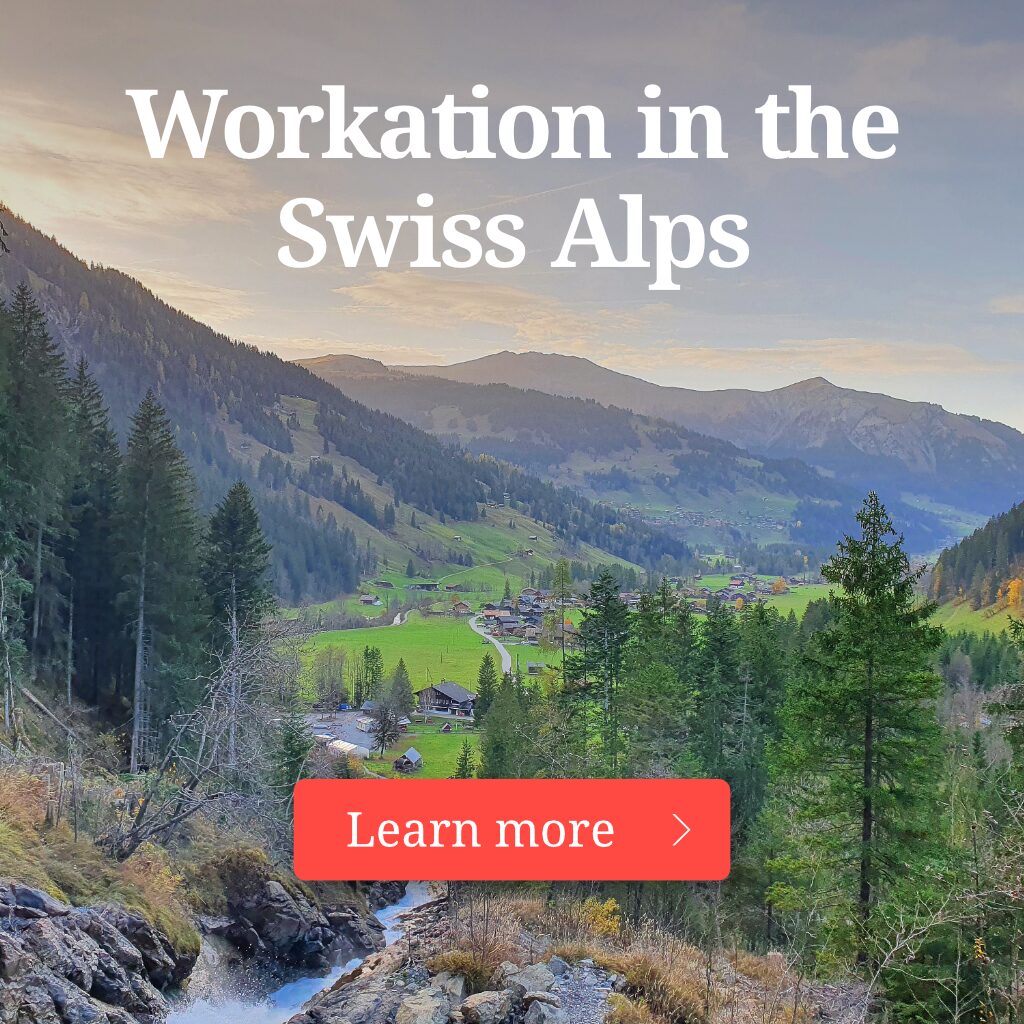|
|
Can you become a digital nomad if you are a digital marketer? The short answer is absolutely yes! While not all digital marketing jobs are remote (just because a job has digital in the title does not mean that it is remote), there are a growing number of fully remote digital marketing opportunities that can support a digital nomad lifestyle.
In this article, we deep dive into the question of how to be a digital nomad as a digital marketer. We start by understanding what counts as digital marketing and where you can find digital marketing jobs and freelance opportunities, plus how much you can expect to earn. Next we highlight the essential skills to develop in order to be competitive in the field, and review the pros and cons of traveling as a digital nomad while working in digital marketing.
What is a Digital Marketer
Digital marketers use a variety of digital channels to build brand awareness for companies or products and generate sales leads. This kind of work can involve a variety of different tasks such as producing and optimizing content on a company’s website, building social media networks and engagement, search engine optimization, email marketing, analyzing digital engagement, and much more. It is any kind of marketing that is done through digital channels.
Many different roles fall under the digital marketing umbrella and you can expect to see job titles such as digital marketing copywriter, SEO specialist, social media manager, marketing analyst, email marketing specialist, and director of digital marketing.
These jobs are often offered as remote in companies that support remote and hybrid working. Smaller businesses also often outsource this kind of work to remote freelancers rather than maintaining a full-time role. So, in short, there are lots of remote working opportunities out there for anyone with an interest or expertise in digital marketing who wants to work fully remotely to travel as a digital nomad.
Finding Remote Digital Marketing Jobs
There are lots of places where you will find remote digital marketing jobs. If you are looking to freelance, then freelancer websites like Upwork and Guru are a good place to start. There are a variety of jobs so you can find opportunities regardless of your experience level, and you can build a portfolio of clients, making finding more lucrative clients easier.
Looking at recent opportunities, there are short-term roles such as setting up a new social media presence on Facebook and Instagram for the company to then takeover, and kickstarting promotion for a new online course. These are generally low-paying jobs valued at around US$250 for the task but can be a good way to gain experience. There are also continuous roles such as a digital marketer to manage email lists and social media channels, and a TikTok marketing specialist to run a company’s viral account.
If you are looking for more secure work as a company employee, then all the major online job boards are the place to start. You will find great opportunities on Indeed, We Work Remotely, and Remote Co.
Looking at recent job postings, we have seen a full-time remote Marketing Manager job for Asia posted at US$24-$36,000 per year, a US-linked Marketing Specialist at US$65-95,000 per year, an international SEO Campaign Manager for US$1-$2,000 per month, and an international Head of Marketing at US$80-$120,000 per year.
According to Glassdoor, digital marketers in the United States make between US$62-$116,000 per year.
Essential Digital Marketing Skills
While there are lots of remote digital marketing opportunities out there, it is a competitive field, and you can find yourself competing against a lot of talent for roles. If you want to be competitive in the marketplace, consider investing in developing the following skills.
Video Editing
As platforms like TikTok, YouTube, and Instagram dominate how many people digest media, creating engaging video that captures attention within a few seconds and has the potential to go viral is an extremely valuable skill. Many companies want their videos produced quickly but cheaply, so you don’t need to become a professional videographer. Focus on writing video scripts and knowing what kind of content works for different platforms and audiences, editing videos using established platforms and apps, and how to effectively share and promote video content.
SEO and SEM
With so much online content available, it is imperative to get in front of your target audience’s eyes as soon as possible after they type in a search term. This is where understanding search engine optimization (SEO) and search engine marketing (SEM) is important and valued by employers. While you don’t need in-depth knowledge of the back-end technology, you need to understand the mechanics and the principles of best practices that enable optimal performance.
Content Marketing
Ideally, all of the content that you produce on any platform, whether that be a website blog, podcast, e-book, and more, should be engaging your target audience with key messages. Of course, not all content should feel like marketing, audiences don’t want to be sold to all the time. But all content should be informing your audience about what they should know about your brand and establishing a relationship for future engagement. The skill to develop and commission a variety of content that meets this need is an essential skill.
Data and Analytics
More so than ever, companies want to know that they are getting a return on their investment when they spend on marketing. They also want solid data to help drive decisions around marketing approaches and investment. A good working knowledge of how to gather and analyze relevant data is essential, as are the skills to communicate that data to stakeholders in an accessible and meaningful way through tools such as infographics and storytelling.
Design Thinking
Increasingly thoughtful companies are thinking about the overall user journey and the user experience at specific touch points as the core of the engagement strategy, rather than isolated marketing campaigns or interventions. Being able to design and work with the overall user experience is an increasingly important marketing skill as you exploit pain points for opportunities and the optimal moment for conversion.
Key Challenges for Remote Digital Marketers
If you are thinking of combining a career in digital marketing with a digital nomad lifestyle, there are some essential challenges to be aware of, some of which apply to most remote jobs, and some of which are specific to the field. None of these should be considered barriers, but rather issues to be addressed to have the best possible experience.
Equipment and Workspaces
Finding a good place to work can be challenging as a remote digital marketer. This is a challenge for all digital nomads, but if you work in an area such as data entry, you might be able to sit down and do your work almost anywhere. If you are working in digital marketing, you will probably need to work with content-heavy images and video, which require a powerful laptop and specialist programs, which you will have to pay for yourself if you are freelancing.
If you need to produce video or audio, finding an appropriate and quiet space to do this can be challenging, as is having access to the right kind of cameras. As a remote digital marketer, it is important to give yourself a generous budget for essential equipment and programs. Also, be prepared to make use of coworking spaces with dedicated quiet rooms for things such as filming.
Time Zones
If you are working with clients or part of a broader team, you will have remote meetings to discuss projects and progress. If you only need to check in once a month, this may not be a great concern, as you can probably handle a 3 a.m. meeting every four weeks. But if you work on projects that need significant contact, trying to maintain that while in a vastly different time zone can be challenging. Consider what you have on your plate and who you need to be in touch with when choosing where to travel.
Ensuring that you travel to places and book accommodation that has reliable internet is also essential. This sometimes means paying more for accommodation.
Permission to Work
Many people think that because a job is fully remote, you can apply for it from anywhere in the world. While that is true in some ways, in most cases companies are still restricted on who they can hire. Employment law means that in most cases they can only hire people who have permission to work in countries where they have strategic bases. So, if a fully US-based company is hiring, they will only be able to hire people with permission to work in the US. If a company with offices in three countries, for example, in the US, Germany, and the UK, is hiring, then they can only hire someone with permission to work in one of those countries.
Freelance and contract roles are more flexible and are not subject to the same strict rules. But remember that just because you are earning in one country and living in another does not mean that you are exempt from paying taxes. Generally speaking, you need to pay tax on your income and abide by tax laws wherever you are a tax resident, and no one is a tax resident of nowhere.
Loneliness
While the digital nomad lifestyle is an exciting one, it can be isolating. You are away from your family, friends, and support network, and you can feel divided from the people around you by a lack of familiarity as well as language and cultural barriers. Since humans are social beings, lacking meaningful daily interactions with others can quickly lead to issues such as depression. In almost all surveys of digital nomads, loneliness and isolation are highlighted as their number-one challenge.
Benefit of Digital Marketing Roles of Digital Nomads
While there are challenges to face, there are also substantial benefits to becoming a digital nomad marketer.
- Digital marketing is one of the most in-demand professional areas and is increasing, so there are plenty of opportunities, and it is an industry that is likely to grow.
- Many digital marketing jobs are purely digital and purely remote, giving you the opportunity and flexibility to travel freely while earning. Digital marketing working hours also tend to be flexible, so you can work around your other commitments.
- Salaries in the digital marketing sphere are strong, making it relatively easy to earn a living wage, especially if you choose to travel to countries with a lower cost of living than your employer country.
- Digital marketing involves highly transferable skills if you decide to move into another professional sphere or go into business for yourself.
Overall, the benefits of combining a digital marketing career with a digital nomad lifestyle far outweigh the challenges. So, if you are asking whether you can be a digital nomad as a digital marketer, the answer is a resounding yes.












